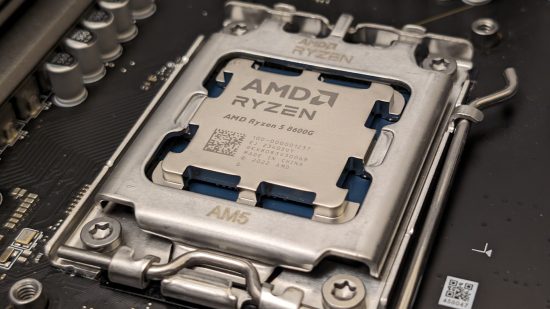The advent of AMD Zen 5 CPUs will undoubtedly usher in new AM5 motherboards, equipped with more advanced chipsets, but the new chips will also be backwards compatible with existing boards. This, however, requires manufacturers to provide BIOS updates for existing stock, something Asus is wasting no time in distributing.
In addition to packing performance befitting of the best gaming CPUs, the wider motherboard compatibility available to next generation Ryzen processors should give AMD a decided advantage over Intel, whose next desktop chips are poised to demand an entirely new socket. Asus may be one of the first companies pushing BIOS updates ahead of release, we can expect more companies to follow suit as we get closer to launch.
The ROG Crosshair and Strix X670E motherboard series can now be updated with a ‘BETA BIOS 2003’ which includes support for ‘Granite Ridge’ CPUs, the codename for Zen 5 desktop processors, in addition to other improvements. You can find downloads for the new BIOS files on your motherboard support page (if supported), or as part of this post on the ROG forum, as highlighted by 9550pro.
It’s important to note that few motherboards support the ability to update their BIOS without a CPU. So, you’ll need to have a Zen 4 processor on hand, like the Ryzen 5 7600X, to update your board before slotting in a shiny new Zen 5 chip. Check out our guide on how to perform a BIOS update if you’ve not done it before.
The reason for the early deployment of BIOS updates is pretty clear, given that Zen 5 release rumors currently point to Ryzen 9000 processors being with us sometime in Q3 2024. We’re likely to learn more at Computex 2024, as AMD CEO Dr. Lisa Su is already set to head up a keynote for the convention.
Whether the company will stagger the release of its 9000 series CPUs remains to be seen, with X SKUs debuting first and X3D following later. Until then, the Ryzen 7 7800X3D remains the most powerful gaming processor in AMD’s arsenal.
